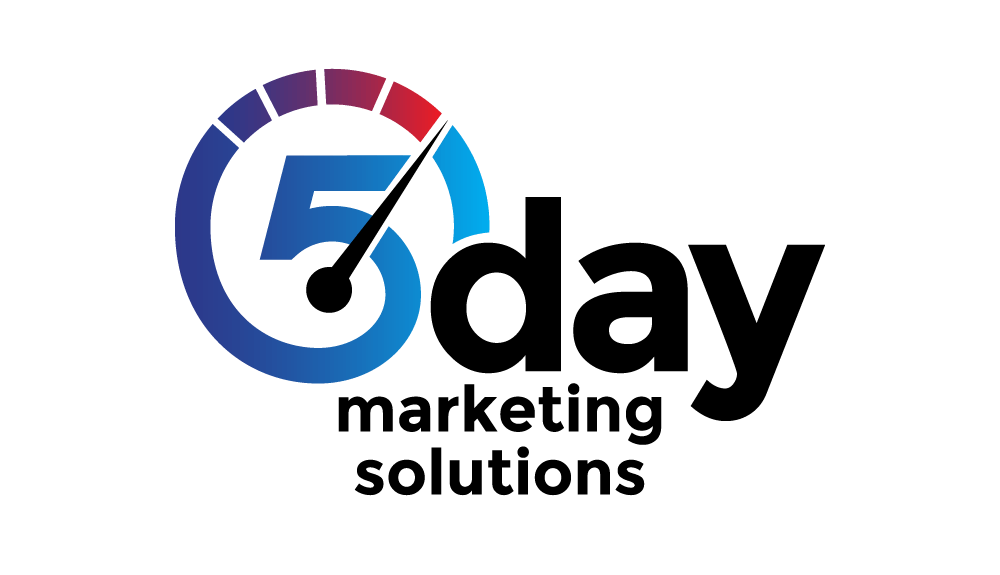Top Small Business Marketing Strategies to Grow Your Brand
Effective small business marketing strategies to grow your customer base and increase revenue

In today’s digital-first marketing landscape, where every click, view, and scroll counts, businesses can no longer afford to treat their advertising budgets as a guessing game. Whether you're running Google Ads, Facebook Ads, or investing in email marketing and influencer marketing, strategic ad budget management can significantly improve your return on investment (ROI) and help you achieve scalable business growth.
At Five Day Solution, we guide companies through intelligent spend management strategies using tools like Google Analytics, HubSpot, and advanced predictive analytics. Our goal? Help you turn advertising expenses into long-term revenue drivers—without overcomplicating the process.
Below, we break down the methods, tools, and tactics that smart brands are using to optimize their marketing budgets and win more customers—efficiently and effectively.
What are the key principles of effective ad budget management?
Effective ad budget management comes down to:
- Aligning budget with campaign goals (e.g., brand awareness, lead generation, customer retention)
- Prioritizing targeted advertising over broad messaging
- Using behavioral retargeting to reduce customer acquisition cost (CAC)
- Allocating spend based on data analysis and market research
- Regularly reviewing performance with real-time dashboards and project management tools
These principles allow businesses to scale strategically while reducing risk and avoiding wasteful spend.
How does budget planning improve advertising ROI?
Proper budget planning helps you:
- Control cost per lead (CPL) and cost per action (CPA)
- Avoid overspending on underperforming channels
- Allocate more budget toward higher-quality conversions
- Forecast revenue more accurately
- Improve your value proposition and offer clarity to stakeholders
In short, it ensures every dollar spent has a purpose—and that purpose drives measurable value.
Why is cross-channel budget allocation important?
Cross-channel allocation enables brands to reach their target audience at different stages of the buyer’s journey. Whether it’s:
- Google Ads for high-intent searches
- Facebook Ads for social discovery
- Google Display Network for contextual advertising
- Email marketing for re-engagement and upsells
- Native advertising for brand credibility
Each channel plays a role. Allocating your ads budget effectively means understanding those roles and budgeting accordingly.
What role does data-driven optimization play in budget management?
Data-driven optimization transforms how brands allocate and adapt. Through tools like Google Analytics, HubSpot, or your CRM, you can:
- Understand consumer behavior
- Identify your best-performing segments and ads
- Adjust spend based on behavioral patterns
- Minimize customer acquisition cost and increase customer lifetime value (CLV)
- Use predictive analytics to prepare for market shifts
Smart budgeting is impossible without real-time data and analysis.
How can you optimize your advertising budget allocation?
- Base spend on previous campaign performance and competitive analysis
- Segment by target market, product, and funnel stage
- Adjust budget distribution weekly or bi-weekly
- Use marketing automation to improve timing and efficiency
- Apply GDPR cookie consent standards to ensure compliance while tracking user behavior
What are proven advertising budget allocation tips?
- 70/20/10 Rule: 70% on proven performers, 20% on new testing, 10% on experimental or seasonal
- Allocate based on quality score, not just CPC
- Increase budget when conversion rates and revenue trends are rising
- Use a shared spreadsheet to visualize channel breakdowns and spend pacing
How to balance spending across Google Ads, Facebook Ads, and other channels?
- Identify which channels bring in your highest customer engagement
- Use search engine campaigns for bottom-of-funnel, purchase-ready customers
- Run Facebook Ads for mid-funnel brand discovery and influencer marketing
- Use email marketing to nurture and retain leads
Test, monitor, and adjust based on performance data and user feedback.
When should you adjust your budget based on campaign performance?
You should reallocate when:
- Cost per lead rises above your target
- A/B tests show better results in other channels
- Your landing page shows poor conversion metrics
- A shift in your target market occurs (e.g., seasonality, behavior, competition)
- You've reached a saturation point or fatigue with current creatives
Which tools and technologies support ad budget management?
- Google Ads account manager tools
- HubSpot ad integrations for CRM-driven automation
- Marketing budget software like Revealbot, AdEspresso, and Shape.io
- Custom dashboards (e.g., Looker Studio or Supermetrics) for visual performance insights
- Benchmarking tools for market comparison and expense control
What features should you look for in budget management tools for ads?
- Integration with CRM, analytics, and ad platforms
- Automation for budget pacing and A/B testing
- Support for cross-platform spend tracking
- Real-time alerts and campaign notifications
- Compliance tools for GDPR cookie consent
How does automation improve ad budget efficiency?
Marketing automation saves time and improves accuracy. Automation tools help you:
- Pause low-performing campaigns
- Shift spend to higher-performing ads automatically
- Track spend and trigger alerts when thresholds are met
- Dynamically adjust bidding based on real-time conditions
This leads to better efficiency, lower cost per lead, and higher campaign ROI.
What are the benefits of real-time performance tracking?
- Identify drop-offs and address them before damage is done
- Adjust bids or targeting based on high-performing assets
- Monitor budget pacing to avoid overspending
- Quickly respond to feedback, price changes, or market disruptions
What are common ad budget mistakes and how to avoid them?
- Ignoring point of sale insights
- Overfunding a campaign before testing it
- Failing to use behavioral retargeting or lookalike audiences
- Relying on a single channel
- Using vague goals with no benchmarks
Avoid these pitfalls with regular research, performance review, and strategic testing.
Which budgeting errors lead to wasted ad spend?
- Underestimating audience overlap across platforms
- Not segmenting by consumer behavior
- Letting campaigns run past their effectiveness window
- Not adjusting for regional differences in customer acquisition cost
How can A/B testing prevent budget misallocation?
A/B testing ensures you're spending on what works. Test:
- Ad creatives
- Headlines
- CTAs
- Landing pages
- Target audience segments
Even a 5–10% increase in conversion rate can reduce your CPL dramatically.
Why is overlooking cross-channel data a critical mistake?
Without cross-channel data analysis, you miss:
- True attribution
- Frequency overlap
- Hidden trends that could reshape your ads budget
- Signals of fatigue or emerging interests
Integration is the backbone of modern strategic management.
How do you scale and adjust ad budgets for growing campaigns?
- Use predictive analytics to project ROI
- Scale budgets in 10–20% weekly increments
- Monitor customer acquisition cost and revenue side-by-side
- Prepare backup assets to prevent creative fatigue
- Tie scaling decisions to customer engagement metrics, not just impressions
When is it time to increase your advertising budget?
- Your campaigns are hitting 90% of daily limits
- Your cost per action is stable or decreasing
- You’re seeing consistent lead generation
- Your product is gaining traction in the market (via market research or sales trends)
How to maintain efficiency while scaling ad spend?
- Build margin into your spend growth
- Benchmark results weekly
- Invest in content variation and marketing automation
- Cross-promote with email marketing or content hubs to reduce ad reliance
- Use real-time software alerts for overspending
What consulting strategies help optimize large ad budgets?
- Layered segmentation (by product, market, behavior)
- Campaign bundling to simplify spreadsheet management
- Outsourcing to vetted freelancers for niche testing
- Creating multi-touch attribution reports with HubSpot or similar CRMs
- Continuous competitive benchmarking and quality score analysis
How can you measure the success of your ad budget management strategies?
Track metrics like:
- Cost per conversion
- Revenue per campaign
- ROAS
- Customer lifetime value
- New vs. returning user performance
- Time to acquisition from ad click
What metrics best reflect budget optimization success?
- Lowered average CPL
- Higher conversion rates on landing pages
- Increased email marketing list growth
- Growth in brand-related search engine queries
- Positive shifts in customer engagement and retention metrics
How to use custom dashboards for budget reporting?
Custom dashboards should:
- Show spend by channel, campaign, and time frame
- Highlight key conversion metrics
- Flag budget pacing issues
- Visualize ROAS trends
- Compare current vs. previous period performance
Why is continuous budget review essential for long-term success?
Markets shift. Platforms evolve. Customer behaviors change. Continuous review helps:
- Maintain competitive advantage
- Prevent underperformance
- Capitalize on growth moments
- Align budget with actual outcomes, not assumptions
What are the latest trends in ad budget management?
- Cross-channel spend management automation
- AI-driven bidding and behavioral retargeting
- Integration between CRM and ad platforms
- Budget forecasting powered by machine learning
- Transparent reporting to support stakeholder trust and compliance
How is AI changing ad budget allocation?
Artificial intelligence is transforming:
- Bid management
- Campaign performance prediction
- Customer behavior modeling
- Personalized ad delivery
- Budget forecasting with risk modeling
Smart brands use AI not to replace marketers—but to enhance decision-making.
What role does cross-platform integration play in modern budgeting?
It ensures:
- Consistent messaging
- Unified performance tracking
- Smarter attribution
- Easier A/B testing across multiple assets
- Seamless customer relationship management alignment
How are automated alerts improving budget control?
- Get notified before overspending occurs
- Receive recommendations based on industry benchmarking
- Automatically pause underperforming ads
- Flag campaigns that exceed acceptable CPL or CAC
Final thoughts
Ad budget management is no longer a set-it-and-forget-it exercise. With rising competition, platform complexity, and consumer expectations, businesses must take a proactive, data-driven approach. By integrating smart tools, cross-channel strategy, and continuous review, your digital advertising campaigns can go from expensive experiments to consistent revenue machines.
Need help turning your ad budget into a growth engine? Five Day Solution is ready to partner with you—bringing strategy, structure, and clarity to your next campaign.



